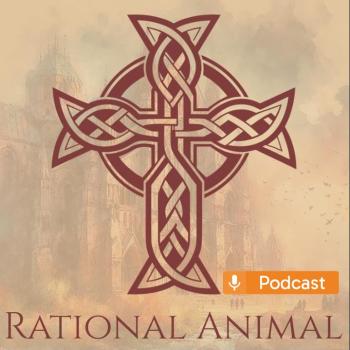On March 20, Pope Francis wrote a letter to Federico Mayor, President of the International Commission against the Death Penalty. This letter builds on previous statements the Pope has made against the death penalty, but it is much more detailed. Significant extracts have appeared in English, but at the moment the full text does not seem to be available and I think that the missing parts contribute to the overall force of his argument. The Vatican has published it in Italian and in the original Spanish. In the future I want to comment more fully on what Pope Francis and on the conservative backlash against it, but for now, as a first step, I want to make the full text available in English.
The translation below is partly my own from the Spanish, but I also drew heavily on extensive passages in English given by Independent Catholic News and by the Vatican Information Service. However, these translations are awkward and I have made many changes and corrections to them. In several places where the Spanish grammatical structure is involved, I have added words in “[…]” to help clarify the meaning. Finally, in a couple places I have added some editorial comments.
As two of my fellow bloggers are professional translators, I hope they will have mercy on my efforts here. Corrections to my translation will be gratefully accepted.
His Excellency
Sr. Federico Mayor,
President of the International Commission against the Death PenaltyWith these letters I want to give my greetings to all the members of the International Commission Against the Death Penalty, to the group of countries that support it, and to those who collaborate with the organization over which you preside. I also want to express my personal thanks, and also those of people of good will, for your commitment to a world free of the death penalty and for your contribution to the establishment of a world-wide universal moratorium on executions with the aim of abolishing capital punishment.
I have shared some ideas on this subject in my letter to the International Association of Penal Law and the Latin American Association of Penal Law and Criminology of May 30, 2014. I had the opportunity to take a closer look at these ideas in my talk before the five largest associations in the world dedicated to the study of penal law, criminology, victimology and prison issues on October 23, 2014. I want to take the opportunity on this occasion to share with you some reflections by which the Church can contribute to the humanist effort of the Commission.
The Church’s Magisterium, based on Sacred Scripture and the thousand-year experience of the People of God, defends life from conception to natural end, and supports full human dignity inasmuch as it represents the image of God (cf. Gen 1:26). Human life is sacred since from its beginning, from the first instant of conception, it is the fruit of God’s creating action (cf. Catechism of the Catholic Church, 2258). And from this moment man, the only creature that God has loved for itself, is the object of a personal love on the part of God (cf. Gaudium et spes, 24).
States kill when they apply the death penalty, when they send their people to war or when they carry out extrajudicial or summary executions. They can also kill by omission, when they fail to guarantee to their people access to the bare essentials for life. “Just as the commandment “Thou shalt not kill” sets a clear limit in order to safeguard the value of human life, today we also have to say “thou shalt not” to an economy of exclusion and inequality” (Evangelii gaudium, 53).
“Life, especially human life, belongs only to God…Not even a murderer loses his personal dignity, and God himself pledges to guarantee this…” As St. Ambrose wrote, God did not want to punish Cain by a homicide “preferring the correction rather than the death of a sinner” (cf. Evangelium vitae, 9). On some occasions it is necessary to repel an ongoing assault proportionately to avoid damage caused by the aggressor, and the need to neutralize him could lead to his elimination; this is a case of legitimate defense. (cf. Evangelium vitae, 55). Nevertheless, the presuppositions of legitimate personal defense do not apply at the social level, without the risk of misinterpretation. When the death penalty is applied, it is not for a current act of aggression, but rather for an act committed in the past. It is also applied to persons whose ability to cause harm is not current since it has been neutralized and they are already deprived of their liberty.
Today the death penalty is inadmissible, no matter how serious the crime committed. It is an offense against the inviolability of life and the dignity of the human person, one which contradicts God’s plan for man and society and his merciful justice, and impedes the penalty from fulfilling any just objective. It does not render justice to the victims, but rather fosters vengeance.
For the rule of law the death penalty represents a failure as it obliges the state to kill in the name of justice. Dostoevsky wrote: “to execute a man for murder is to punish him immeasurably more dreadfully than is equivalent to his crime. A murder by sentence is far more dreadful than a murder committed by a criminal.” [from The Idiot, ed.] Justice can never be accomplished by killing a human being.
The death penalty loses all legitimacy because of the defective selectivity of the penal system and the real possibility of judicial error. Human justice is imperfect and not recognizing its fallibility can convert it into a source of injustice. By the application of the death penalty the convict is denied the possibility of repenting or making amends for the harm caused; the possibility of confession, by which a man expresses his inner conversion; and contrition, the gateway to atonement and expiation, in order to reach an encounter with God’s merciful and healing justice.
Furthermore, capital punishment is frequently taken up by totalitarian regimes and groups of fanatics in order to exterminate political dissidents, minorities, and any subject labelled as ‘dangerous’ or who may be perceived as a threat to its power or to the achievement of its ends. As in the first centuries, the Church at the present also suffers the application of this penalty to its new martyrs.
The death penalty is contrary to humanitarian sentiment and to divine mercy which must be the model for human justice. It involves cruel, inhuman and degrading treatment, as well as the anguish prior to the moment of execution. [It also involves] the terrible wait between the sentence being pronounced and the application of the penalty, a “torture” that, in the name of due process, usually lasts for many years and in the prelude to death often leads to infirmity and insanity.
In some quarters there is a debate about the method of killing, as if it were possible to find ways of “getting it right.” Throughout history a variety of mechanisms of death have been defended as reducing the suffering and agony of the condemned. But there is no humane way of killing another person.
In reality, not only do there exist means means of suppressing crime without definitively depriving those who commit them of the possibility of redeeming themselves (cf. Evangelium vitae, 27), but there has also developed a greater moral sensibility in relation to the value of human life. [This] provokes an increasing aversion to the death penalty and support in public opinion for various provisions that lead to its abolition or the suspension of its application (cf. Compendium of Social Doctrine of the Church, 405).
On the other hand, life imprisonment, like those that because of their duration imply for the prisoner the impossibility of planning a future of freedom, can be considered as a sort of covert death penalty, as they not only deprive detainees of their freedom, but they also attempt to deprive them of hope. But even though the penal system can claim the time of convicted persons, it can never claim their hope.
As I said in my talk last October 23, “the death penalty implies the negation of the love of enemies preached in the Gospels. All christians and men of good will are obligated not only to fight for the abolition of the death penalty, legal or illegal and in all its forms, bu also for the improvement of the conditions of incarceration out of respect for the human dignity of the persons deprived of their liberty.” [This is not an exact quote. ed.]
My dear friends, I encourage you to continue with your work because the world needs witnesses to the mercy and tenderness of God. I say goodbye commending you to the Lord Jesus, who during his life on earth did not want harm done to his persecutors in his defense—“Put your sword back in its sheath (Mt 26:52)—was arrested and unjustly condemned to death, and identifies himself with all [emphasis in original, ed.] those imprisoned, guilty or not: “I was in prison and you visited me” (Mt 25:36). [May Jesus], who when confronted with the woman caught in adultery did not ask questions about her guilt but rather invited her accusers to examine their own consciences before stoning her (cf. Jn 8:1-11), give you the gift of wisdom, so that your actions taken for the abolition of this cruel punishment be successful and fruitful.
















